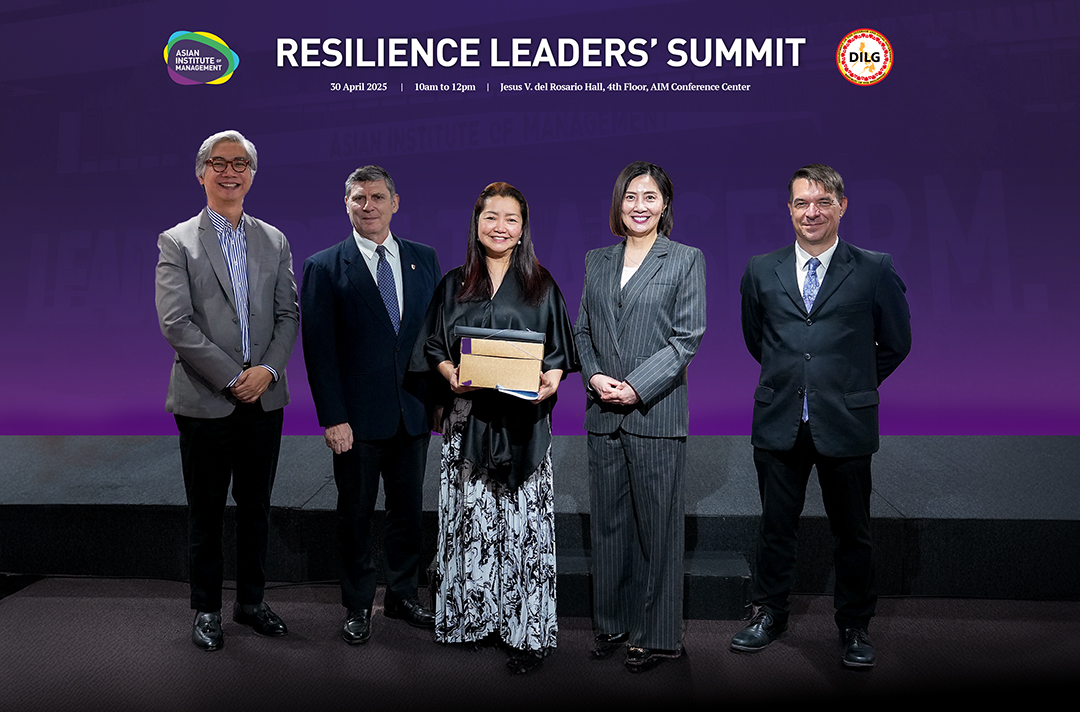Department of the Interior and Local Government Urges Stronger Local Action at Resilience Leaders’ Summit
MAKATI CITY, PHILIPPINES – Government officials, the academia, and disaster management experts gathered at the Asian Institute of Management (AIM) Resilience Leaders’ Summit to address the Philippines’ climate vulnerability and showcase innovative approaches to building national resilience.
In her opening remarks, AIM President and Dean, Jikyeong Kang, PhD, spoke about the importance of climate change initiatives. “We have to do our bit to make sure that we not only prosper within our times but to make sure that this world, the Earth, and what we do with it is going to be preserved and well- nurtured for many generations to come.” Dr. Kang emphasized.
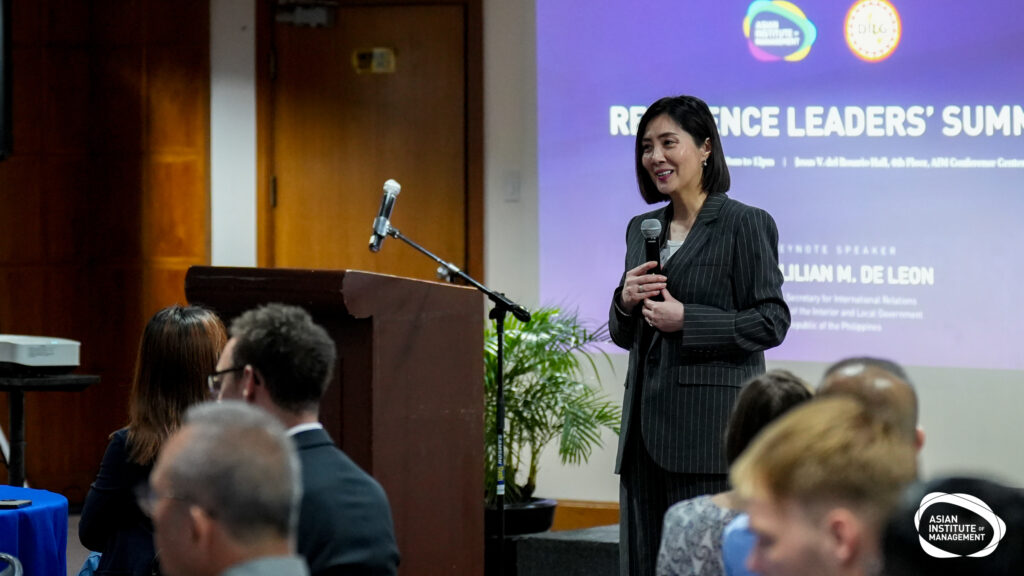
Dr. Kang highlighted the Institute’s early investment in data-driven leadership, referencing the creation of the Master of Science in Data Science (MSDS) program nearly a decade ago—well before data became a mainstream buzzword.
She emphasized how this foundation in data science is now intentionally aligned with AIM’s crisis and development programs, particularly the Executive Master in Disaster Risk and Crisis Management (EMDRCM). Through recent cross-program initiatives, students are now engaging in climate-focused capstone projects that draw from both analytical and field-based leadership disciplines—demonstrating an integrated approach to solving complex global challenges.
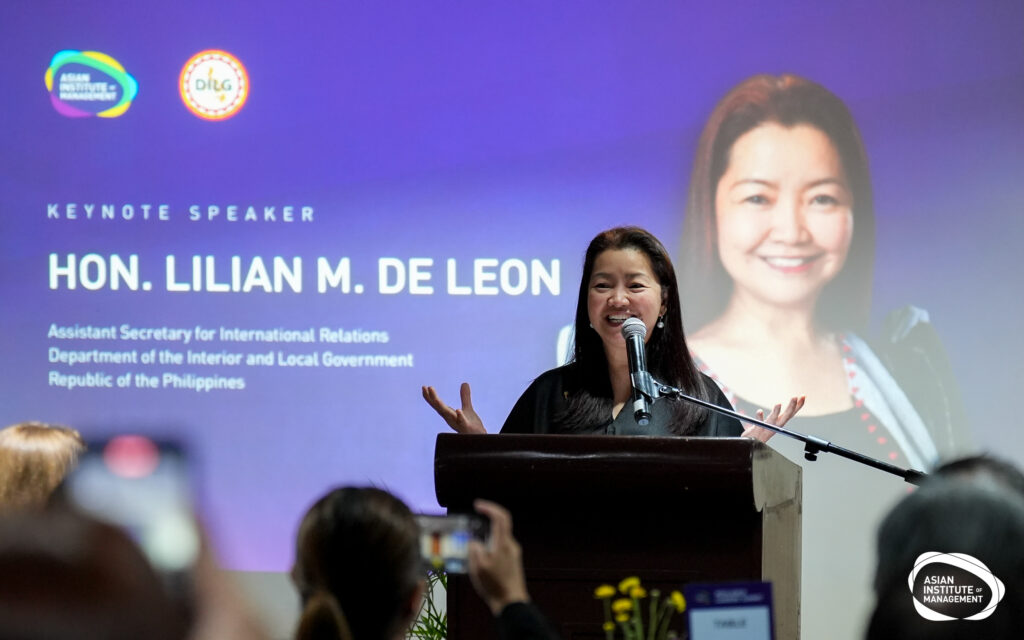
Delivering the keynote address on behalf of Secretary Juanito Victor C. Remulla, Jr. of the Department of the Interior and Local Government (DILG), Assistant Secretary for International Relations, Lilian M. De Leon, of DILG, emphasized the Philippines’ critical position in the World Risk Index.
In his prepared remarks, Secretary Remulla stated, “As we work towards a more resilient Philippines, we cannot overemphasize the importance of partnerships among the national and local governments, civil society organizations (CSOs), academe, the private sector, and other stakeholders.”
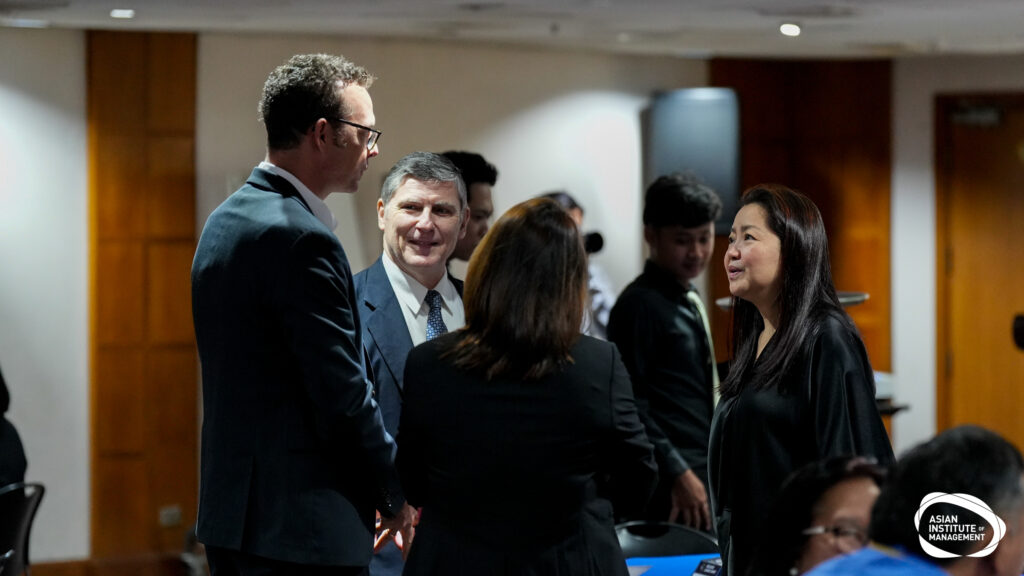
He further noted, “As a country located within the Pacific Ring of Fire, the Philippines is no stranger to nature’s wrath,” referencing last year’s experience of six typhoons in just three weeks, which serves as a stark reminder of the country’s exposure and vulnerability to climate-related disasters.
ASec. De Leon outlined key DILG initiatives, including Operation LISTO, the department’s flagship disaster preparedness program, and announced the upcoming launch of the Integrated National 911 System, set to roll out in Greater Manila, Cebu, and parts of Mindanao by June.
“The Department is ready to collaborate with you in areas where we can enhance our efforts to build a more resilient, inclusive and sustainable Philippines,” ASec. De Leon underlined.
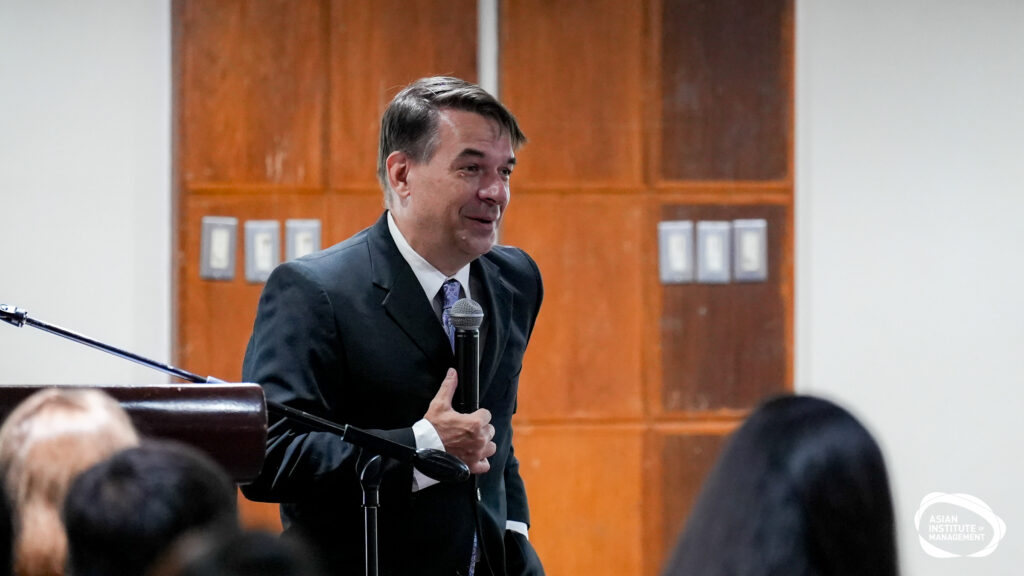
Professor Chad Michael Briggs, PhD, Academic Program Director of the EMDRCM program, highlighted how their students have demonstrated real-world impact during last year’s tropical storms.
Prof Briggs noted that resilience is not a passive trait but a practiced skill, and that the EMDRCM program serves as an incubator for that discipline. “What we’re building here is not just technical expertise,” he added. “We’re building a network of crisis leaders who are changing how resilience is imagined, implemented, and scaled.”
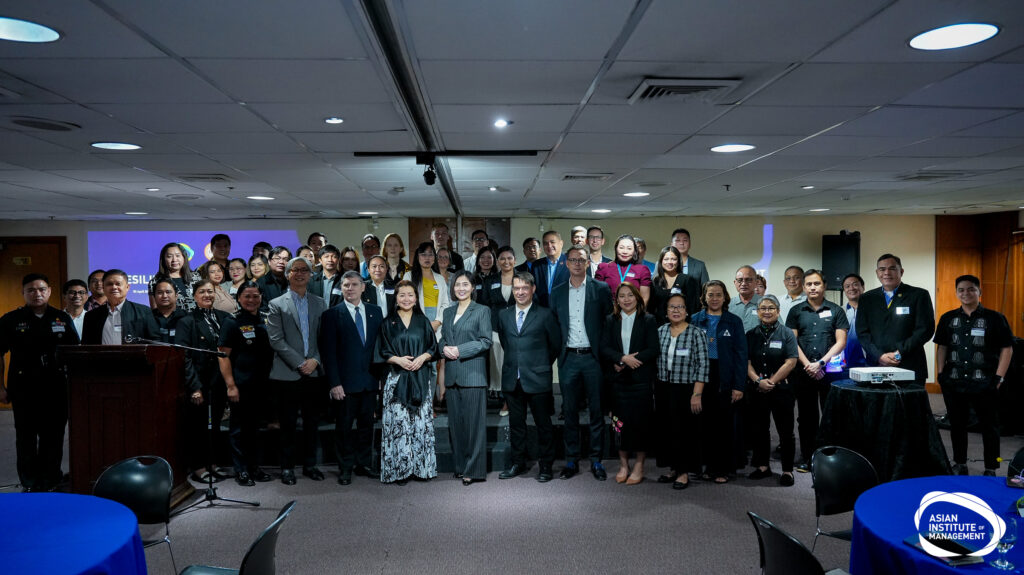
The event concluded with the announcement of the second round of the Sustainable Leadership Learning for Climate and Disaster Risk Reduction (SLL-CDRR) Scholarship Program, offering 21 full scholarships for the EMDRCM and another 5 for the MSDS programs funded through the Office of Senator Loren Legarda and the Climate Change Commission.
Click here for more information about our Executive Master in Disaster Risk and Crisis Management and Master of Science in Data Science programs.

